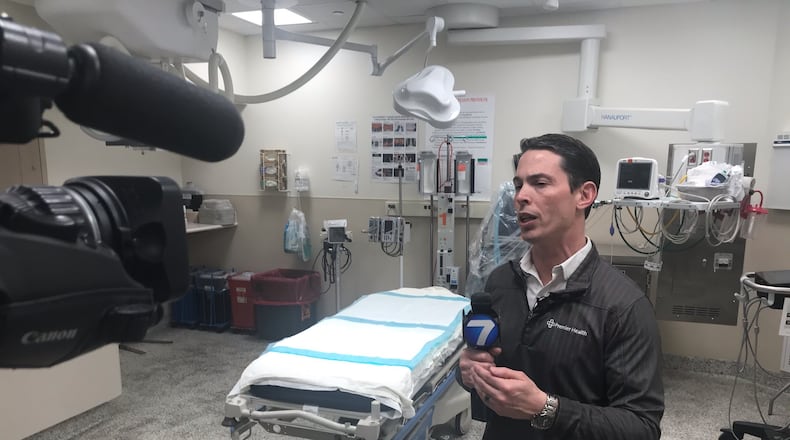PREVIOUS COVERAGE: Area health care workers, hospitals prepared for outbreaks
The risk remains low in Ohio, with no confirmed cases found in the state.
Dr. Roberto Colon, associate chief medical officer at Miami Valley Hospital and VP of Quality for Premier Health, said Saturday night the best thing that anyone can do right now is continue the same prevention measures medical professionals have been pushing the entire flu season.
This includes:
- Stay home when you are sick
- Avoid contact with people who are sick
- Eat well-balanced meals and get adequate sleep
- Wash hands often with water and soap for 20 seconds or longer
- Dry hands with a clean towel or air dry hands
- Cover your mouth with a tissue or sleeve when coughing or sneezing
- Avoid touching your eyes, nose, or mouth with unwashed hands or after touching surfaces
- Clean and disinfect "high touch" surfaces often, such as door handles
- Call before seeing your doctor
“Right now that’s the best advice that we can give anybody because that’s most likely how we are going to see the passage of this illness from one person to another,” Colon said.
The virus at the center of the outbreak, COVID-19, is part of a large family of different coronaviruses that may cause mild to severe respiratory illnesses. Many people have had some type of coronavirus in their life, such as common cold.
Sometimes a novel — or a new type — of coronavirus starts to circulate among people.
This happened with severe acute respiratory syndrome (SARS) in 2003 and Middle East respiratory syndrome (MERS) in 2014, and now COVID-19, which started spreading in December.
PREVIOUS COVERAGE:Public Health monitoring at-risk travelers in Ohio for new coronavirus
Some people infected with COVID-19 have had little to no symptoms while other people have become severely ill.
Colon said there’s no reason for the general public in Dayton area to buy masks.
“There is no reason right now — and I can’t stress this enough — there is no reason right now for the general public to go out and buy masks and walk around wearing masks when they are going into common areas,” Colon said.
The Associated Press contributed to this story.
About the Author
